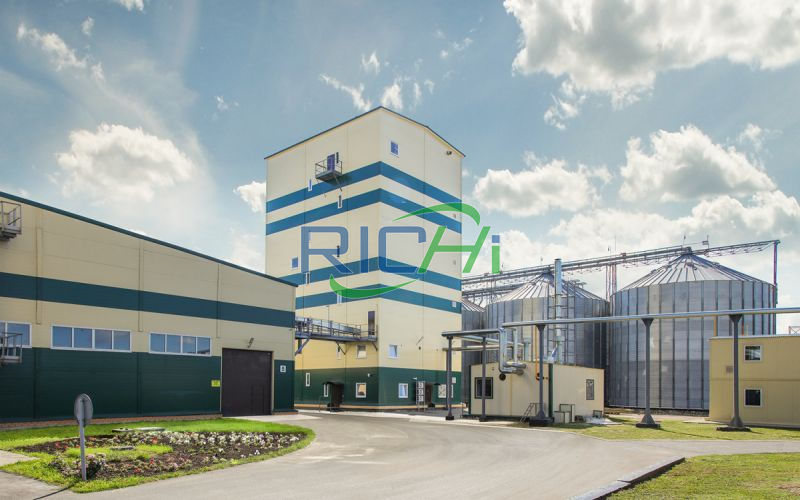

Truck Unloading Systems:
Storage Silos:
Material Transport Systems:
Note: These systems must be designed to handle the harsh Russian winters, with proper insulation and heating elements where necessary.
Hammer Mills:
Roller Mills:
Pulverizers:
Note: The grinding equipment should be robust enough to handle the variety of grains and ingredients commonly used in Russian livestock feed formulations.
Batch Mixers:
Continuous Mixers:
Liquid Addition Systems:
Micro-ingredient Scaling Systems:
Batching Control Systems:
Note: Mixing equipment should be designed for easy cleaning and maintenance, considering the importance of hygiene in feed production.
Pellet Mills:
Conditioners:
Coolers:
Crumblers:
Extruders:
Note: The pelleting equipment should be capable of producing high-quality pellets that can withstand transportation across Russia’s vast territory.
Rotary Drum Dryers:
Cooling Towers:
Note: Efficient drying and cooling systems are crucial in Russia’s climate to ensure proper moisture content in the final feed products.
Bagging Lines:
Bulk Loadout Systems:
Warehouse Management Systems:
Note: Packaging equipment should be designed to protect the feed from moisture during storage and transportation in Russia’s diverse climate conditions.
NIR Analyzers:
Moisture Meters:
Sieve Analyzers:
Durability Testers:
Microscopes:
Note: Investing in comprehensive quality control equipment is essential to meet Russian feed safety standards and ensure consistent product quality.
Programmable Logic Controllers (PLCs):
Supervisory Control and Data Acquisition (SCADA) Systems:
Manufacturing Execution Systems (MES):
Enterprise Resource Planning (ERP) Software:
Note: Advanced automation systems are crucial for efficient operation and compliance with Russian traceability requirements.
Dust Collection Systems:
Explosion Prevention Systems:
Fire Detection and Suppression Systems:
Note: Given the combustible nature of feed ingredients, robust safety systems are essential to comply with Russian safety regulations.
Boilers:
Air Compressors:
Electrical Substations:
Backup Generators:
Note: Reliable utility equipment is crucial, especially in remote Russian locations where power supply may be inconsistent.
Building a large livestock feed mill in Russia requires a significant investment in a wide range of specialized equipment. From raw material handling to final product packaging, each stage of the feed production process demands carefully selected machinery that can withstand Russia’s unique environmental and regulatory challenges.
When sourcing this equipment, it’s important to consider factors such as energy efficiency, durability in harsh climates, and compliance with Russian standards and regulations. Many international equipment manufacturers offer customized solutions for the Russian market, often with local support and service networks.
Additionally, given the scale of investment, it’s advisable to work with experienced feed mill design and engineering firms that understand the specific requirements of operating in Russia. These experts can help optimize the plant layout, ensure proper integration of all equipment, and provide valuable insights into local best practices.
By carefully selecting and integrating the right equipment, a large livestock feed mill in Russia can operate efficiently, produce high-quality feed, and meet the growing demands of the country’s livestock industry. Such a facility can play a crucial role in enhancing Russia’s agricultural productivity and contributing to its food security goals.
Introduction The production of organic fertilizers involves several stages, from raw material collection to final…
1. Introduction Organic fertilizer pelletizers are crucial equipment in the production of organic fertilizers. Their…
The production of fish feed pellets is a critical aspect of aquaculture, providing fish with…
In the rapidly expanding field of aquaculture, the quality and consistency of fish feed are…
Mesh belt dryers are widely used in various industries for drying materials such as food,…
Mesh belt dryers are essential for efficiently drying various materials, including food products, chemicals, and…